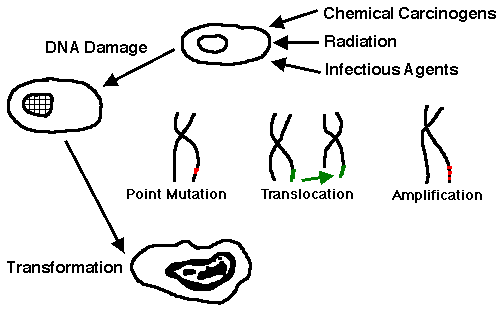|
The process of neoplasia begins with cell transformation. A variety of chemical carcinogens as diverse as benzene, cigarette smoke, and nitrites can initiate and/or promote this process. Radiation, either as low level long-term environmental gamma rays or as higher dose therapeutic radiation, can also produce genetic mutations in cells. Some persistent infectious agents such as human papillomavirus can lead to cellular transformation as well.
Genetic damage with DNA alterations leads to point mutations of genes, translocations of genetic material between chromosomes, and gene reduplication with amplification. These alterations transform proto-oncogenes into oncogenes. The proto-oncogenes within cells may play a role in growth promotion and regulation in normal cells, perhaps in embryogenesis, but are typically "turned off" in adults. They are "turned on" by transformation and lead to the uncontrolled growth that defines neoplasia. |






